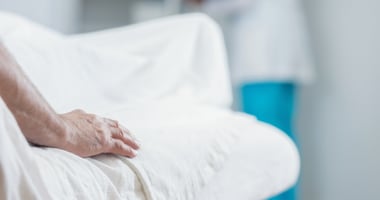High Psychological Distress Found Among Chinese Students During Early Weeks of Pandemic

Students in China reported high rates of psychological distress during the early weeks of the COVID-19 pandemic, but wearing a face mask frequently and exercising had some protective benefits, according to a study published this week in JAMA Network Open.
“The COVID-19 pandemic may worsen existing mental health problems and be associated with more mental health problems among children and adolescents because of the unique combination of the public health crisis and social isolation,” wrote Lei Shi, M.D., of Southern Medical University in Guangzhou, China, and colleagues.
Shi and colleagues analyzed data from nearly 1.2 million school-aged children and adolescents living in the Guangdong province in China. The students completed online questionnaires from March 8 to 30, 2020, which assessed mental health status using the Chinese version of the 12-item General Heath Questionnaire. Students were considered to be experiencing psychological distress if they scored 3 or greater on the questionnaire. The researchers asked questions specifically related to the pandemic, including how many sources they used to obtain COVID-19 information and how often they wore face masks (always, most of the time, sometimes, few, or never).
In total, 10.5% of the respondents—whose mean age was 12 years—reported psychological distress. Older students reported higher levels of psychological distress compared with younger students, especially those in their final year of high school. Students from areas with a high risk for COVID-19 transmission had higher odds of psychological distress compared with students from areas with a lower risk of transmission.
The study also revealed the following behaviors that seemed to lower risk of psychological distress:
- Students who knew of more than five sources for COVID-19 information had lower odds of psychological distress compared with students who knew of only one source.
- Students who reported always wearing face masks were less likely to report psychological distress than students who reported rarely wearing face masks.
- Students who spent more than one hour exercising a week had lower odds of psychological distress than students who spent less than 30 minutes exercising a week.
“Based on these findings, it is necessary for governments, schools, and families to pay attention to the mental health of school-aged children and adolescents during the COVID-19 pandemic and take appropriate countermeasures to reduce the impact of the COVID-19 pandemic on mental health for children and adolescents,” the authors concluded.
For related information, see the Psychiatric News article “Long-Term Impact of COVID-19 on Children, Adolescents Constitutes Public Health Emergency.”
(Image: iStock/kohei_hara)
Don’t Miss Your Chance to Vote in APA’s 2021 Election
APA’s 2021 election is now under way. Review the individuals running for office, watch candidate videos, and learn more about the election process at psychiatry.org/elections. The deadline to vote is Monday, February 1, at 11:59 p.m. ET. If you are a voting member of APA, just go to APA’s website at psychiatry.org/election and click on “Vote Today.”
Don't miss out! To learn about newly posted articles in Psychiatric News, please sign up here.






